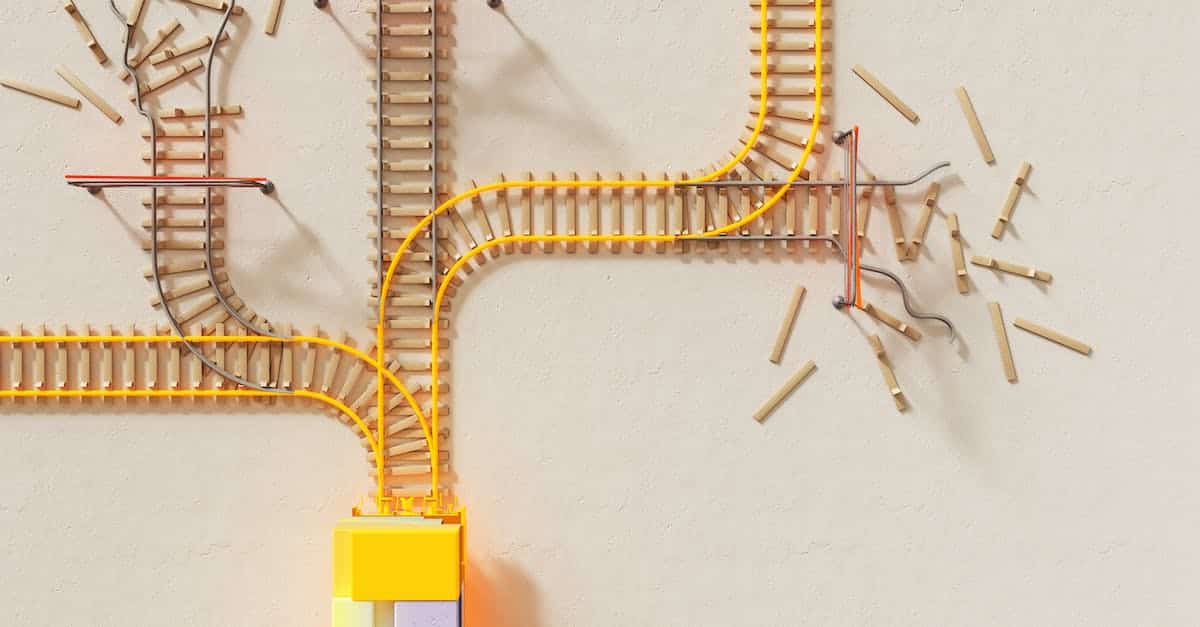Imagine placing your bets with the confidence that the game you’re playing is indisputably fair. Blockchain technology is revolutionizing the casino industry by bringing transparency and trust to the forefront. As you dive into the world of decentralized gaming, you’ll discover how blockchain is not just a buzzword but a game-changer for ensuring fairness in casino games.
In this article, you’ll explore the mechanics of blockchain that make it a perfect ally for fair play. You’ll learn about provably fair algorithms, smart contracts, and the immutable nature of blockchain records that together create a trustworthy gaming environment. Whether you’re a casual player or a gaming enthusiast, understanding the impact of blockchain on game fairness will transform your view of online gambling.
Table of Contents
ToggleThe Importance of Fairness in Casino Games
When you venture into the world of online casinos, the significance of fairness cannot be overstated. Fair play is the cornerstone of a reputable casino’s reputation and essential for attracting and retaining players. With the rise of digital gaming, the concern of rigged games or opaque systems has amplified. Your trust hinges on the certainty that each game you play is based on a random and fair mechanism.
Transparency is key in this regard. Without it, casinos would find it difficult to prove the integrity of their games. You might wonder how casinos can assure players that their system is free from manipulation. This is where blockchain’s inherent properties come into play. By safeguarding the game’s fairness, blockchain enables casinos to demonstrate that they’re operating above board.
To understand this better, it’s helpful to grasp how traditional online casinos operate. Typically, these platforms rely on a Random Number Generator (RNG) to maintain the game’s randomness. However, the inner workings of these RNGs are often kept hidden from you, raising suspicions. Blockchain technology counters this skepticism by allowing casinos to implement provably fair algorithms that you can verify independently.
- Fair Randomness: Blockchain’s decentralized system generates random outcomes in a transparent manner.
- Player Trust: With verifiable records, there’s a greater sense of security and trust among players.
- Audit Trails: Blockchain creates a permanent record of all transactions and game results, fostering accountability.
The reliance on these technologies isn’t just about player satisfaction; it’s also a strategic business decision. Casinos that adopt blockchain stand out in a highly competitive market, ensuring you’re not just another number, but a valued player in a fair system. With the stakes as high as they are, fairness in casino games isn’t just preferable—it’s imperative.
What Is Blockchain Technology?
At its core, blockchain technology is a digital ledger that’s distributed across a network of computers. This innovative technology records transactions in a way that makes it difficult to hack or cheat the system. Each block in the chain contains a number of transactions; every time a new transaction occurs on the blockchain, a record of that transaction is added to every participant’s ledger.
The decentralized and immutable nature of blockchain makes it a perfect match for casinos that aim to establish trust with their players. With blockchain, once the data has been recorded, it can’t be altered without the alteration of all subsequent blocks and the consensus of the network. This critical feature provides tamper-proof records of all gaming transactions, which means that the outcomes of games can be independently verified by players.
- Decentralization: No single authority has control, preventing tampering and ensuring fairness.
- Immutability: Once recorded, the data cannot be altered retroactively.
- Transparency: All participants can view the transaction records.
Blockchain technology utilizes cryptographic algorithms to ensure secure transactions. These transactions are then grouped into blocks, which are linked together to form the chain. Each block is securely connected to the ones before and after it.
Smart contracts, which are self-executing contracts with the terms directly written into lines of code, are also a fundamental aspect of blockchain for casinos. They automatically enforce and execute the rules of the game, payouts, and other operations without the need for intermediaries. For players, this means fairness in games is not just promised but is encoded into the very fabric of the gaming platform.
Blockchain’s secure, transparent, and immutable characteristics not only help in creating provably fair games but also assure efficiency in payouts, enhance security against fraud, and facilitate instant transactions, which can be a huge draw for prospective players seeking immediate gratification from their gaming experiences.
How Blockchain Ensures Fairness in Casino Games
Blockchain technology is revolutionizing the gambling industry by bringing unparalleled fairness into casino games. Imagine playing a game where every turn you take, every move made, is recorded on an indelible digital ledger. This ledger, or blockchain, is distributed across countless computers worldwide, ensuring that no single party can tamper with the historical record of transactions.
At the heart of blockchain’s fairness protocol are smart contracts, self-executing contracts with the terms directly written into code. When you place a bet, the contract is executed automatically, based on preset, unchangeable rules. This leaves no room for human error or manipulation. Consider the potential:
- Each game’s algorithm is public on the blockchain, allowing you to verify its fairness.
- Random number generators (RNGs) become transparent, giving players insight into the true randomness of games.
Here are some statistics to illustrate blockchain’s impact on industry fairness:
| Aspect | Description |
|---|---|
| Game Transparency | Increased due to visible algorithms and open-source code |
| RNG Verification | Accessible and provable for every player |
| Payout Efficiency | Enhanced due to automated payouts through smart contracts |
Another key feature is the immutable transaction record. Once data has entered the blockchain, altering it is practically impossible. This means that casinos cannot change your betting history or the outcome of a game once it’s recorded on the blockchain. It’s a tamper-proof, secure environment that guarantees each game’s result was fair and unaltered.
Blockchain’s integration with casino games also streamlines the transaction process. Tokens or cryptocurrencies used in gambling can be transferred instantly, reducing the wait times associated with traditional bank transfers. This efficiency uplifts the user experience, fostering a dynamic and trusting relationship between players and gaming providers.
Through these mechanisms, blockchain is setting a new standard for fairness, one that may soon become the benchmark across the entire casino industry.
Exploring Provably Fair Algorithms
Provably fair algorithms represent a pivotal innovation in online gaming, ensuring that casinos operate without bias. Unlike traditional online casinos where the internal mechanisms for randomness and fairness are opaque, blockchain casinos using these algorithms provide a transparent method for players to verify the fairness of each game themselves.
With provably fair systems, the process of random number generation (RNG) is no longer a black box. Instead, before a bet is placed, the casino provides a hashed seed number, while you can provide your own seed. After the bet, the casino reveals the initial seed, and you have the opportunity to verify the game’s result by using the seeds.
To facilitate this, typically three variables are involved:
- Server Seed: Provided by the casino, kept secret until after the bet.
- Client Seed: Provided by you, ensuring that the server seed cannot be altered in a way that would benefit the casino.
- Nonce: A number that increases with each bet, preventing the reuse of seeds.
Here’s how the process usually unfolds:
- The server generates a secret seed.
- A hash of this seed is shared with you.
- You add your own seed, which modifies the outcome in a way that neither party can predict.
- The bet is made and the outcome is determined.
- The original seed and the corresponding result are revealed for you to verify.
This system of checks and balances virtually eliminates the risk of cheating. It’s a testament to blockchain’s disruptive power in the gambling sector, enhancing trust and customer satisfaction.
By integrating provably fair algorithms, casinos take a significant leap towards demonstrating absolute transparency. As the blockchain records each interaction, it creates an added layer of accountability. Thus, trust is built on cryptographic proof rather than reputation alone, and the outcome of every dice roll, card deal, or slot machine spin is verifiable through the blockchain.
The Role of Smart Contracts in Gaming
In the rapidly evolving world of online gaming, blockchain technology isn’t just stopping at provably fair algorithms. It’s stepping up the game with smart contracts. You may already be familiar with smart contracts as self-executing contracts with the terms of the agreement directly written into code. These contracts run on the blockchain, which means they provide a level of security and trust that was previously unattainable in online casinos.
Imagine a casino game that operates autonomously, executing payouts, bets, and the enforcement of rules all by itself. That’s exactly what smart contracts bring to the table. Once deployed, they act as unbiased intermediaries, enforcing the rules and ensuring that payouts are dispensed promptly and accurately. In this way, the potential for human error or manipulation is practically eliminated.
The transparency of smart contracts goes hand-in-hand with provably fair algorithms. Not only can you verify the fairness of the game, but you can also see the predetermined rules for payouts and game mechanics. These contracts are tamper-proof, meaning once the conditions are set, they cannot be changed. This level of transparency builds even stronger trust between players and gaming platforms.
Here’s what you gain with smart contracts:
- Verifiable Transparency: Every transaction and outcome is recorded on the blockchain.
- Reduced Fraud: No intermediaries mean fewer opportunities for malicious activities.
- Immediate Payouts: Winnings are automatically transferred to your wallet without delay.
By incorporating smart contracts into their platforms, casinos are capable of offering a fully automated gaming experience, where trust is assured and efficiency is paramount. This innovation is heralding a new era in gaming where you can play with peace of mind, knowing that the system is engineered to be fair and just. With such features, blockchain continues to reshape the landscape of online gambling, ensuring that fairness and transparency aren’t just expectations but guarantees.
Immutable Blockchain Records and Trust
When engaging in online gaming, trust becomes a paramount concern. Blockchain technology offers an unparalleled level of security in this regard with its immutable records. Imagine every die roll, card shuffle, or slot spin indelibly recorded in real time. No one—not the casino, players, nor hackers—can alter these records once they’re under the protection of the blockchain.
Here’s what this means for you:
- Transparency: You have access to a game’s entire transaction history, fostering a transparent environment.
- Accountability: Casinos are held accountable for their actions. Disputes can be resolved with undeniable proof of each transaction.
- Integrity: The blockchain’s permanency reinforces the integrity of the games and the establishments offering them.
The trust established by immutable records is not just about protecting your funds; it’s also about ensuring fair play. The ledger provides a comprehensive audit trail for each game. This public visibility deters nefarious activities, as manipulating the outcome would require tampering with all copies of the ledger simultaneously—an infeasible task given the decentralized nature of the blockchain.
To put this into perspective, consider the following comparison:
| Traditional Online Casinos | Blockchain-Based Casinos |
|---|---|
| Records can be manipulated | Immutable transaction ledger |
| Limited transparency | Full transparency with a complete audit trail |
| Trust based on reputation | Trust built into the technology itself |
Blockchain doesn’t just record the outcomes; smart contracts can be coded to manage bets and ensure automatic payouts based on those immutable records. This further reduces human error and bias, giving you peace of mind that the system is incorruptible.
As blockchain technology forges ahead, it’s becoming clear that its application in online casinos is a game-changer. The trust this technology fosters could very well set a new standard for the industry, where players can engage confidently, knowing that the authenticity of their gaming experience is undeniable.
Benefits of Blockchain for Casino Game Fairness
When you’re navigating the online gaming landscape, fairness is a top priority. Blockchain technology is at the forefront of ensuring that the games you play are transparent and fair. One major benefit of blockchain for casino games is irrefutable trust. The decentralized nature of blockchain means that no single party can alter gaming outcomes to their advantage, ensuring a level playing field for all players.
Blockchain also eliminates any potential of tampering. With the integration of cryptographic algorithms, the gaming process becomes tamper-proof, preventing any manipulation of game outcomes. This cryptographic approach is crucial for maintaining the integrity of each game played, leaving no room for doubts about the legitimacy of your winnings.
Smart contracts play a pivotal role in automating transactions and enforcing game rules, which are programmed directly into the blockchain. These smart contracts are self-executing, with the terms of the agreement between player and casino directly written into the code. This feature:
- Ensures that payouts are instantaneous and accurate.
- Guarantees that the agreed rules are applied to each game without exception.
- Reduces the need for intermediaries, slashing the potential for human error or bias.
The impact on operational costs is another advantage worth noting. By streamlining transactions and reducing the overhead associated with traditional casinos, blockchain-based casinos can offer better odds and higher payouts. Here’s how the traditional and blockchain models compare:
| Aspect | Traditional Casinos | Blockchain Casinos |
|---|---|---|
| Trust | Reliant on reputation and regulation | Built-in through transparency |
| Outcome Integrity | Potential for dispute | Secured using cryptography |
| Payouts | May involve delays | Instantaneous |
| Operational Costs | Higher due to intermediaries | Lower due to smart contracts |
| Player-to-Casino Ratio | Lower due to overhead costs | Higher due to reduced expenses |
By implementing blockchain technology in online gambling, you’re not only participating in an environment that fosters fairness but also supporting a system that may offer more rewarding gameplay. The inherent security and fairness of blockchain provide a compelling argument for its widespread adoption in the casino industry.
Transforming the Online Gambling Experience
Imagine logging onto your favorite online casino and knowing with full certainty that each game you play is fair and untampered with. This isn’t a distant reality but one that blockchain technology is making possible today. The decentralized nature of blockchain ensures that each transaction, each spin of the reel, and every shuffle of the deck is recorded on a public ledger. This transparency is revolutionary, as it allows you to verify each game’s fairness independently.
Blockchain technology takes it a step further by streamlining the gambling process. Smart contracts automatically handle payouts, reducing the wait time for receiving your winnings. With these protocols in place, you no longer need to question whether you’ll receive your funds; the smart contract ensures that winners are paid promptly and without error.
The cost savings from using blockchain are passed on to you in the form of better odds and higher payouts. Traditional online casinos incur significant costs, from licensing fees to software upkeep and an array of staff salaries. Blockchain casinos, by contrast, operate with a fraction of these expenses.
| Traditional Casinos | Blockchain Casinos |
|---|---|
| High operational costs | Reduced operational costs |
| Standard odds | Better odds |
| Regular payouts | Higher payouts |
This efficiency allows them to provide a more rewarding experience for their users. Moreover, the elimination of intermediaries means that you have a direct relationship with the casino.
By integrating blockchain technology, online casinos are not only promoting fairness but also ensuring that their platforms are secure from hacking and fraud. The cryptographic algorithms used in blockchain are incredibly resilient against cyber-attacks, providing an additional layer of security for your personal and financial information.
As you engage with these new-age online casinos, you’re participating in a system that values transparency, efficiency, and fairness. With blockchain, the online gambling experience is not just transformed; it’s elevated to meet the highest standards of digital innovation.
Conclusion
Embrace the shift towards blockchain casinos as they set a new benchmark for fairness and security in online gaming. You’re entering an era where transparency isn’t just promised—it’s provable and smart contracts streamline your gaming experience ensuring that payouts are swift and accurate. With lower operational costs translating into better odds and higher returns for you the future of online gambling is not only bright but also founded on trust and innovation. Trust in the system enhances your overall gambling experience making it safer and more enjoyable than ever.
Frequently Asked Questions
What are the benefits of using blockchain in online casinos?
Blockchain enhances online casinos by ensuring fairness and transparency, allowing for the independent verification of each game’s fairness, automating transactions through smart contracts, reducing operational costs, and improving security for personal and financial data.
How does blockchain technology ensure fairness in gambling?
Blockchain technology ensures fairness by providing a transparent, verifiable record of all transactions and game outcomes, so players can independently check the integrity of each game.
Can blockchain technology improve the payouts at online casinos?
Yes, blockchain-based casinos often have reduced operational costs, which can lead to better odds and higher payouts for players compared to traditional online casinos.
How do smart contracts benefit online casino transactions?
Smart contracts automate transactions, resulting in prompt and error-free payouts, and ensure that the terms of play are executed exactly as programmed without the need for intermediaries.
Does blockchain technology increase the security of online casinos?
Absolutely, blockchain technology significantly increases the security of online casinos by protecting personal and financial information on a decentralized and heavily encrypted ledger, reducing the risk of fraud and hacking.






















